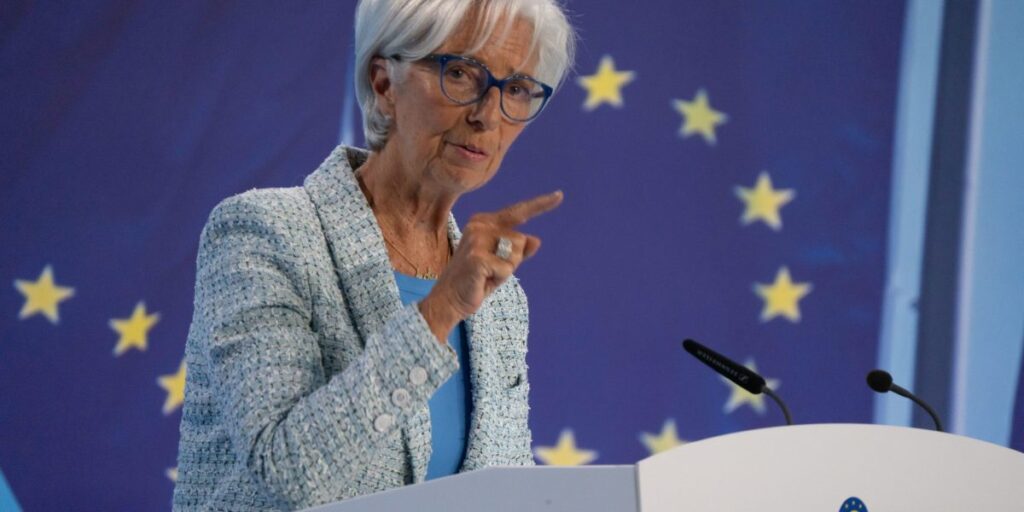Eurozone central bankers are grappling with a mental health crisis forced to deal with historic levels of inflation.
The European Central Bank (ECB) has seen a sharp rise in the number of workers at risk of burnout and an increase in suicidal thoughts, according to internal research.
According to the ECB’s report of 1,602 staff, the rate of burnout rose to 38.9% from 33.2% in the last survey conducted in 2021. The number of people with suicidal thoughts rose from 6% to 9.1%, which equates to 146 employees, according to the survey.
The proportion of workers with at least one psychosomatic symptom, such as fatigue, burnout, depression, or disengagement, is now 72%.
Why are ECB staff under so much pressure?
The bank’s workload is also increasing as it grapples with the highest inflation in its short 25-year history.
Supply chain disruptions, rising consumer spending and Russia’s aggression in Ukraine helped push inflation to a peak of 10.6% in October 2022.
The ECB started raising interest rates a few months ago to slow demand. The base rate was raised to 4.5% by the summer of 2023, and the first rate cut was implemented only in June.
Since its inception in 1999, the ECB has known little peace. Central bankers have had to deal with the global financial crisis and the debt crisis in poor European countries before dealing with the consequences of COVID.
A recent study found that seven out of 10 employees who report burnout report regularly working late hours, while six out of 10 employees who don’t burn out report working late hours as well.
Carlos Bowles, chairman of the ECB’s staff committee, said the “high level of suicide” could not be investigated without asking the bank’s management.
“Pushing is known to lead to bad decisions, and that is not what we want at the ECB, where millions of Europeans could be adversely affected by data analysis, macroeconomic forecasts or incorrect judgments about economic reality,” Bowles said. told Politico magazine.
There are certainly parallels between the information age and the ECB’s historic fight against inflation, but perhaps a more Machiavellian source is to blame for the psychosis.
According to Politico, nearly all survey respondents complained of “power games” at the bank, with nearly 9 in 10 complaining of favoritism, while others said they were not given opportunities for advancement.
An ECB spokesman said: “We take the health and well-being of our staff very seriously and will continue to work with the Staff Committee and all colleagues on these topics and their root causes. , is planning to take measures to solve problems such as career opportunities.
“We do not tolerate inappropriate behavior and are reviewing and improving our internal reporting, investigation and disciplinary systems.”
The survey also provided a picture of allegations of physical and verbal abuse and sexual harassment.
The ECB has been embroiled in several public spats with its staff, most recently over a pay dispute last year. Union representatives at the ECB filed a formal complaint after the bank increased pay by 4 percent in 2023, half the current inflation rate of 8.3 percent.
#Power #game #European #Central #Bank #staff #mental #health #crisis


